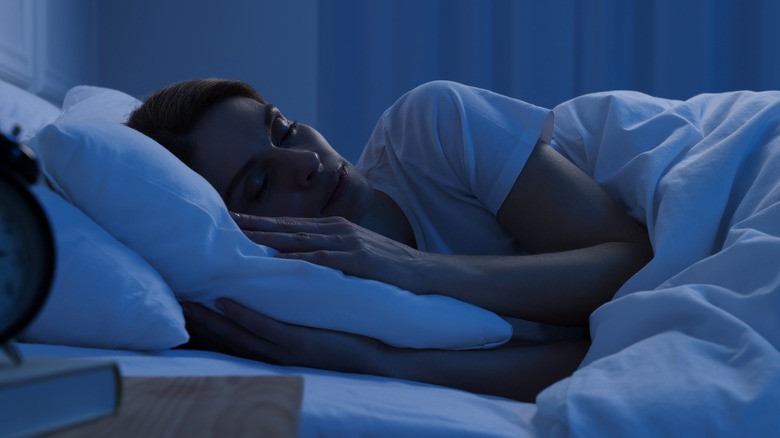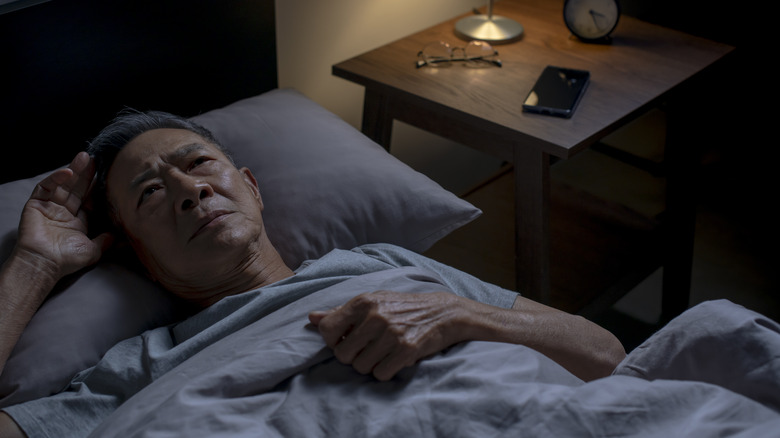What Happens To Your Sleep When You Stop Eating Carbs
What we eat and drink throughout the day may or may not benefit our sleep come bedtime. Downing an extra-large afternoon coffee, for example, might leave you feeling wired and wide awake later that night. Interestingly, what we choose not to consume may also influence our quality of sleep. Some people find this to be particularly true when going carb-free (per Sleep Doctor).
Carbs are among our body's top energy sources, which is why it might seem contradictory that they can actually help the body relax into sleep. This is because carbs have been shown to boost tryptophan uptake, according to 2022 research published in Frontiers in Nutrition. The body then processes tryptophan into serotonin and melatonin — two sleep-related neurotransmitters. Also found in turkey, it's tryptophan that lulls us into that enticing post-Thanksgiving nap so many of us enjoy come November. If you've chosen to eliminate carbs from your diet, however, you may find sleep challenging as you begin to implement these new dietary changes. This can often be the case for individuals starting the keto diet, a phenomenon sometimes called keto insomnia (per Sleep Foundation).
Going carb-free may leave you feeling less sleepy
Because carbohydrates enhance tryptophan uptake, you may not feel that same pull toward sleep when you stop eating carbs. Additionally, you'll no longer experience the same spike in blood sugar levels that occurs after eating refined carbs like white bread or potato chips. Sudden increases in blood sugar levels followed by an inevitable sugar crash can leave us feeling tired (per Sleep Doctor). While it's generally recommended to keep consumption of refined carbs to a minimum, going carb-free means we don't have this fluctuation of blood sugar levels to help induce sleepiness.
When you dial back your carb intake, how much time your body spends in different sleep phases throughout the night may also change. In the scientific evaluation published in Frontiers in Nutrition, experts point to a study that found that eating less carbs produced an increase in slow-wave sleep duration and a decrease in time spent in REM sleep. As the Sleep Foundation explains, REM sleep is paramount to brain development, memory, emotional processing, and more.
The effects of simple carbs vs. complex carbs on sleep
Of course, there's always an exception to the rule, and sleep issues aren't guaranteed when you stop eating carbs. In fact, there's a chance that cutting out carbohydrates may potentially enhance sleep depending on what kinds of carbs you're doing away with.
Those potato chips and slices of white bread we mentioned earlier? Carbs of this variety are known as simple carbs. While some people may feel tired after eating refined carbs such as these, research from a 2022 scientific review published in Frontiers in Public Health states that these kinds of carbs have alternatively been linked with sleep issues like insomnia. Knowing this, minimizing one's intake of pizza or sugary cereals may make sleep easier for some people. Sticking with healthy carbs, known as complex carbohydrates, has oppositely been shown to enhance sleep quality and reduce symptoms of insomnia. Therefore, if you don't wish to cut carbs out of your diet completely, consider lowering your intake of simple carbs versus complex carbs.



